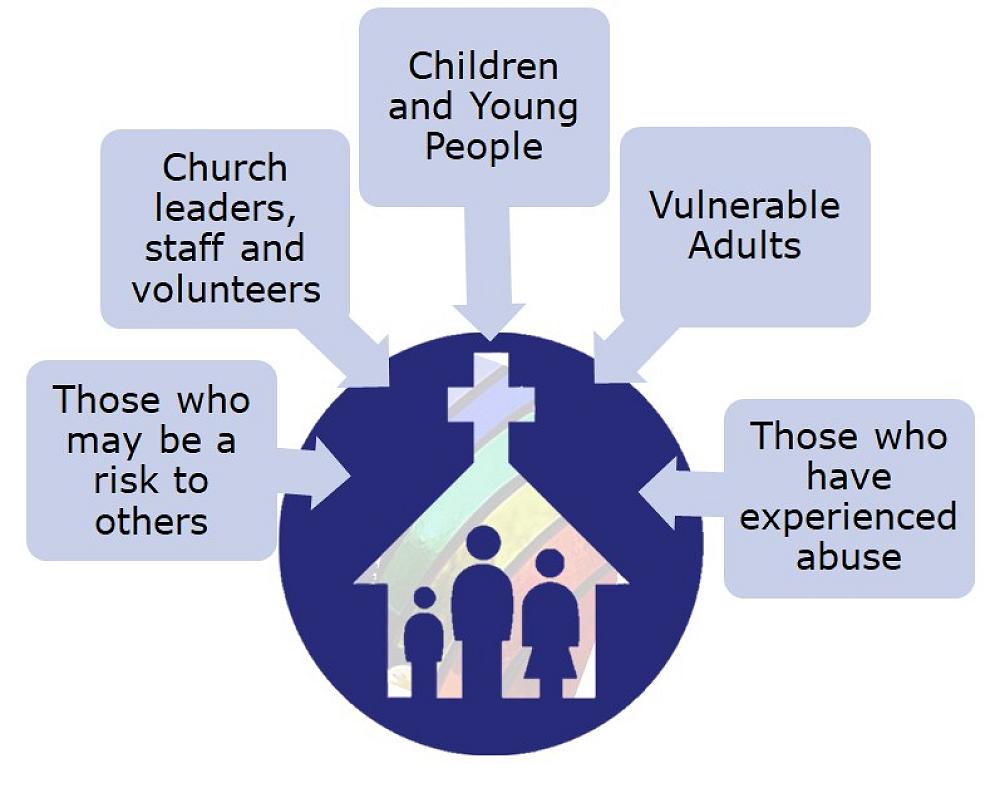
Methodist Church Safeguarding
Safeguarding is not a topic for the faint-hearted. Safeguarding involves measures to protect individuals’ health, wellbeing and human rights to allow people to live free from abuse, harm and neglect.
We are talking about abuse and harm and neglect.
We are talking about the loss of mana, of faith, and of whānau when safeguarding fails.
We are talking about abusers targeting children, young people and vulnerable adults.
We are talking about recognising that we are all vulnerable at different stages of life.
We are talking about recognising the signs of abuse or harm or neglect and doing something to stop it.
We are talking about protecting those who can’t protect themselves, and returning mana to those who have had it taken from them.
We are talking about being accountable to each other to ensure those protections are in place and working.
And if we aren’t talking about all these things, we should be.
New Zealand is currently responding to harm by holding a Royal Commission of Inquiry into Abuse in Care, and to our shared shame, the Methodist Church of New Zealand is responsible for some of that harm. Abuse, harm and neglect happened in the Methodist Children’s Homes in Auckland, Masterton and Christchurch, in some foster placements, in Wesley College and from some of our presbyters.
We need to do something to ensure it does not happen again. E kore anō.
Safeguarding will be discussed at Conference this year. In a plenary on Monday afternoon we will talk about historic abuse and the redress process that the Church is involved in, about returning the mana to the people who survived the abuse, harm and neglect inflicted on them. We will talk about safeguarding for the future and what we need to change to ensure it does not happen again.
We need ways to protect everyone the Church interrelates with; some work for the Church, some visit the Church, some pose a risk, some are exposed to risk and others may be living or have lived with the risk.
We can help protect vulnerable people by ensuring our people know how to recognise abuse, harm and neglect and that they know how and where to stop it and report it. We can reassure people that come to us that we have taken steps to create safe spaces for people to come to. We can monitor our safeguarding activities and constantly seek to improve our efforts. We can revisit our current procedures and information leaflets to ensure they are current and fit for purpose. We can create new strategies to fill the procedural gaps that we have.
There is a lot to do.
“As disciples, a movement and as a people, the Methodist Church affirms that amongst others, God trusts us with the stewardship of creation, and calls us to honour that trust by recognising the interrelatedness and vulnerability of the life and resources of creation.
We recognise God’s loving presence among all peoples at all times. We rejoice in the love of God which empowers us in our struggle towards justice and unity. We believe that Christ leads us to affirm the dignity and worth of every human being.
Therefore the core values of the church include Peace, Justice and Healing as various means to end oppression, share resources with the poor and disadvantaged and offer restoration and healing where there is pain and hurt.”
Some Social Principles of the Methodist Church
